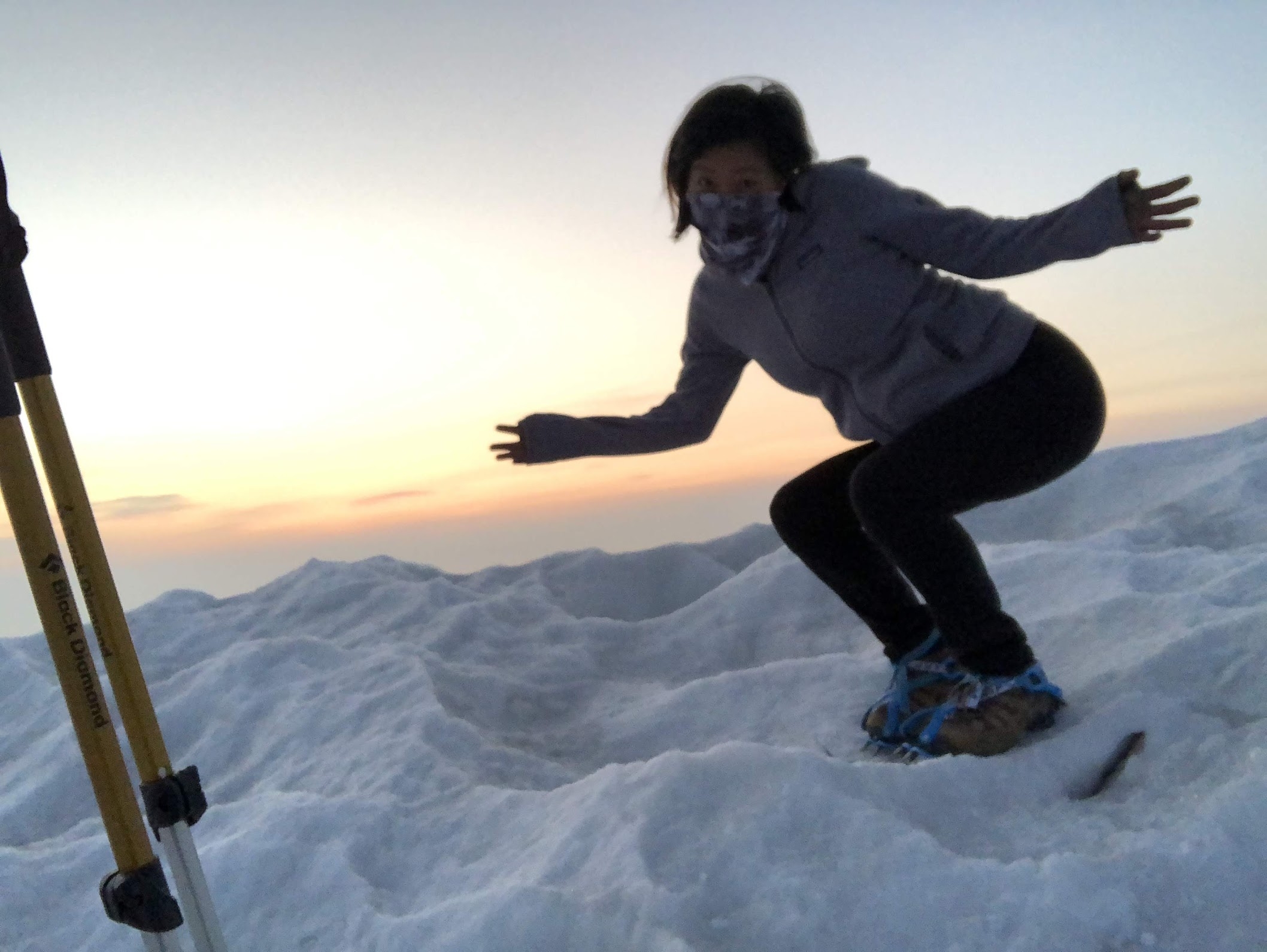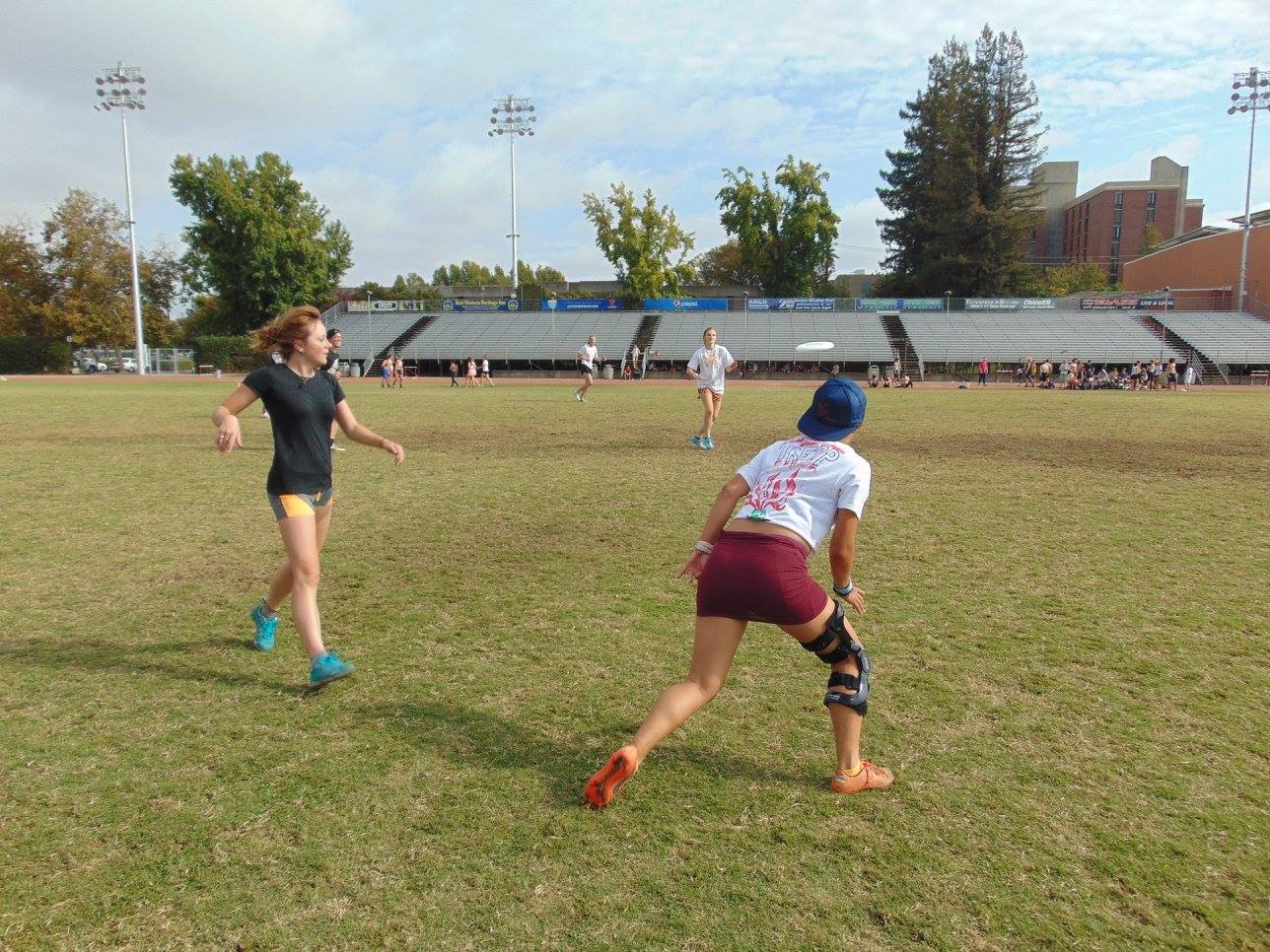Knocking Knees: The ACL Rupturing Kind
Some thoughts on knee problems, recovery, and trekking from a girl with three ACL surgeries.
Over the last few years, I’ve heard some whisperings and thoughts from people who suffer from knee problems and injuries. When I discuss my PCT goals, I sometimes hear in return how some people would love to take this adventure, but they believe their knee problems or injuries hold them back. Shy, I usually don’t talk too much about my knee experiences, but I recently decided that part of who I am is defined by these physical setbacks. I cannot advise anyone on their own injuries or tell them to ignore doctors, but maybe my views and memories can inspire others.
Here Are the Facts
The anterior cruciate ligament, or ACL, is one of four ligaments in the knee to control excessive motion by limitation of joint mobility. The ACL is the main tendon in retraining the force to the tibia and it is statistically the most injured ligament of the four.
Recovery of ACL injuries requires at least four to six months after surgery.
After three surgeries, hiking has become my main sport.
Five Reasons Why Knee Injuries Have Prepared Me for the PCT
1.) Facing failure
My body has broken down. I was now different. I can no longer do the same things I usually do. A long, tough journey now lies in front of me. Realizing how much was actually out of my control helped me finally forgive myself. Some days are just not your days and failing does not mean you have to give up.
2.) Physical endurance
I just can’t, I am out of energy, and everything hurts. At times I said these words out loud, but most often I kept them inside and just kept going. Reset. After knee surgery, your leg is reset to an infant’s level of muscle mass and you have to rebuild. Recovery and physical therapy are the tallest mountains to climb. The entire process has to be purely self-motivated. If you have ever gone through a rehabilitation process, then you know how hard it is to start at ground zero. For many, not only a reasonable amount of strength must be regained, but trying to get back to a peak condition takes an enormous amount of dedication, time, and work.
3.) Mental endurance
Why can’t I just stop and give up. Mental strength can really only be realized after a hard process. Doing the same exercises every day and motivating yourself to be consistent is so hard. Mostly because you’re bored and the only reason for doing such mundane exercises is to eventually run, sprint, and jump into adventure. Spending hours and hours stationary biking, squatting, and balancing are not very interesting. But you do it anyway, because at the end of the day, running down a rock-strewn path and dodging through trees is way worth it.
4.) Loneliness
OK, so not actually physically alone. But if you are declining invitations to take adventures, hike, climb, or activities that require running, then it’s pretty darn lonely inside watching TV. Therefore, going through a recovery for any type of injury is a lonely one. Coping with that isolation, well, it yields a stronger you. You have successfully self-supported yourself mentally through a difficult process. Hiking the PCT, well, that shouldn’t be quite as lonely as watching all your friends physically run ahead of you, while you limp slowly to a bench and sit down.
5.) Understanding pain
The surgery is painful. The recovery is painful. Physical therapy is painful. However, these pains eventually get sorted into different categories of stretchy, healing, or dangerous pain. When restarting from pretty much zero muscle mass, as you recover, you better understand your body. And once recovered, you may come to better understand your threshold of when to stop for your own good versus pushing through.
The Past
I used to be embarrassed by my many knee surgeries. I suppose it was the idea of failure. I injured myself not once, but three times. Therefore, this fact probably suggests that either I’ve made some bad judgments, or that I’ve never learned from my mistakes. However, after years of recovery, I finally forgave myself for failing over and over. Knee injuries can be prevented, but sometimes, crap happens.
My Injury Entries
Scene 1: I was 16 years old, coming off playing my first season of varsity soccer.
A girl slid behind me and stuck her feet between mine. The soccer ball sprang loose. We both chased after it, trying to win the squabble. Sliding on her thigh, the girl swept my legs, popping the ball out. I was on my butt, blood pulsing in my forehead. There was something very wrong. My right knee throbbed. The pain felt like a badly rolled ankle, but at my knee joint. I rolled on to hands and feet and stood. My weight gave out as I stepped forward with my right foot. I buckled. Limping, I made it to the indoor soccer box for a sub. After a few minutes the pain numbed. I felt ready to go back out. I ran out on to the artificial field, planted my right foot, and turned.
Scene 2: I was almost 18 years old, attending an evening Ultimate Frisbee practice
My team was in a defensive zone formation. I was in the backfield, keeping an eye on a random receiver. The frisbee was thrown between players and suddenly I was out of position. A receiver made a break for it toward the end zone. I watched as the frisbee was thrown, streaking toward the goal line. I sprinted after the other player. I found I was faster than she was. My feet were in stride with hers. To maneuver around her, I tried to sidestep to the right, but instead my cleat hit the back of her shoe. She tripped and fell forward. My legs were taken out. Pain pierced through my right knee. Well, all I could think was, not again, please not again. I limped off the field to call my mom with the bad news.
Scene 3: I was 20 years old, finally feeling confident enough to play some intramural soccer.
I had lost a lot of foot coordination, but I was excited to try again at a sport I left behind. Everyone would be at a very low skill level and most have never really played before. So I ran to an open spot, got a pass, and tried my best to dribble the ball toward the goal. I set myself up to make a long pass across the field. My left foot came down as my right was lining up with the ball. My left knee hyperextended. Pain shot up my leg and I buckled. I got up and limped to my car. I went home and lay down. Already, I knew what happened. This time, my left knee had blown out.
Where I am Now?
Well, trying to get back on top of mountains!
This website contains affiliate links, which means The Trek may receive a percentage of any product or service you purchase using the links in the articles or advertisements. The buyer pays the same price as they would otherwise, and your purchase helps to support The Trek's ongoing goal to serve you quality backpacking advice and information. Thanks for your support!
To learn more, please visit the About This Site page.




Comments 2
Good luck on your adventure. I have bad knees too, though not like your problems. I never had any major surgeries, though evidently a bunch of minor injuries that just built one upon another. At the age of 29 I basically gave up Basketball and hiking because of osteoarthritis in my right knee made those sports just unbearably painful. Cut to 15 years later, and I just said screw it I want to hike! And I did. It resulted in painful swollen knees that would knock me off trail for a couple of weeks while they recovered, but through biking to i.prove my strength and knee stability and with the use of trekking poles, I’m able to do 15 to 20 miles day after day now. My doctor told me 5 years ago when I first started hiking again that I would need both of my knees replaced within 5 years, but I don’t want to give up the ability to freak people out by telling them to put their hand on my knee while I bend it. The popping and rough gravelly feel is pretty wild. 😉 One last thing is I met a man hiking the Sierra High Route last year. This is a mostly of trail route that stays above treeline through the Sierra. He was telling me about the gorgeous views, the lakes, the off trail passes, and then pointed out the huge scars on both of his knees, both knee joints were now titanium. He was 80. I figure if he can do something like the SHR at 80 with both knees replaced, I’ve got a lot of years of hiking in front of me too, and so do you. Get out there and enjoy it. And, if you could be so kind as to take some of us along with you, that would be great too.
Thank you for sharing! I love this … this is basically my story. I’ve had three major knee surgeries this past year and a half and boy was it tough. It was during this downtime that I started to seriously consider my dream about hiking the PCT. I’m four months out from my last surgery and am starting to hit the trails again. The reasons your knee surgeries have prepared you for the PCT are on point, I definitely agree with you and have had those same thoughts. Thanks for the encouragement.